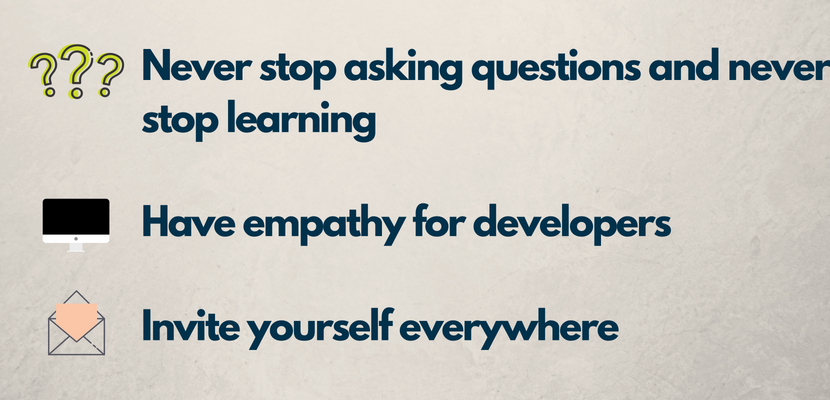
Talking Testing with Alexandra Schladebeck
In the latest edition of my Talking Testing blog series, I caught up with Alexandra Schladabeck – Agile Tester, Consultant and Product Owner based in Germany, about her experience within the industry and advice for other budding software testers!
Firstly please can you introduce yourself and explain how you got into the world of Testing?
I’m Alex Schladebeck, and I’m the head of Software Quality and Test Consulting at BREDEX GmbH in Germany. I lead our company test community, coach our testers, and help teams towards better quality. I’m a trainer for topics such as exploratory testing, testing basics, agile testing, and quality engineering for IoT. I also do consulting and coaching for customers on quality and agile topics. In my spare time (haha!) I do a lot of speaking and keynoting at conferences, am part of the management and strategy team of the company, and try to keep learning as much as I can.
I got into testing by a happy accident. I started off doing documentation for a software product for test automation. Back then, everything in tech was completely new to me. I asked questions, learned and then asked some more questions. In addition, the project began way before continuous builds, integration and testing were really popular. A lot of my documentation work ended up being testing. From there I moved further into testing, being a product owner, a test consultant and now the head of a test team!

You have been with the same company, Bredex GmbH, for the duration of your Test Career, why have you stayed with them for so long?
The short answer is that I love it here! I’ve always been able to grow into new roles and take on new challenges. I’ve been well supported in building our community, our test strategies and also my speaking career. The people I work with are just fantastic, and I actually enjoy coming to work and making our company, projects and the world a bit better by doing what I do.
Companies are constantly struggling with retaining their tech talent, in particular their female employees, in your opinion what makes a good employer?

I think it’s important to offer flexibility and autonomy, while maintaining good individual relationships with your people. Being able to talk about things that affect you and find ways to solve them is important for everyone. There also needs to be room to grow and learn, and the support to take the time to do that. I believe strongly that knowledge workers like us are at their best and most creative when they are given an environment in which they can thrive. For example, we have entirely flexible work hours, the opportunity to take days off with any (voluntary) overtime hours, the option to work from home, and we encourage individuals and teams to make their own decisions for things that they need or want to work better. We also offer a great amount of personal and individual paths and ways of combining work with the rest of your life. What works for one person might not work for another, and it’s important to have empathy and understanding for that – as well as ways of crafting individual paths.
You’re an advocate of creating and nurturing Test Communities, to those who may not be familiar how do you define a “Test Community”?
For me, a community in general is a group of people joined by a common interest or goal that actively work together to help each other and grow – individually and as a whole. For us at Bredex, that means that we know for example who can come and help moderate a tough retrospective, while someone else might be my go-to-person for introducing mob testing to a team. We are greater than the sum of our parts. A specific aspect of a test community is that many projects don’t have a huge amount of testers – smaller projects might only have one. In situations like that it becomes even more important to share experiences, ask for assistance, check our work and sometimes just have a good moan! Our test community meets once a week all together to learn and share experiences, and we have plenty of spontaneous 1:1 sessions on a daily basis. We also look at expanding our horizons: learning more from developers, pairing with them, or offering workshops to them.
The term can cover both the community within your place of work, and also the wider networks of Testers globally. Can you talk me through some communities you are involved with, and how they have helped you over the course of your career?

My main community of involvement is the testing community. My first forays into it were at the agile testing days in 2009, and I was hooked. Since then, you’ll usually find me engaging with the community at conferences, on slack groups and on twitter. I’m lucky that I count many people in the community as friends – and also as peers who can give me guidance on my decisions and path. There are some people specifically in the testing community who I feel I have “grown up” with – we’ve often made similar career steps at the same time. Getting together with those people is always the best gift I can give myself professionally (and sometimes personally!). There are so many people willing to help – by answering questions, coming to speak at an event, and giving me valuable outside perspective. I also love it when I get the feeling I’ve contributed back by helping them.
I’m also quite involved in the Eclipse Community, which is way more developer-centric. I’ve been organising testing events like the Project Quality Day within the Eclipse community and doing workshops and talks on testing for at least 10 years there. I like being involved in a developer community as well – it keeps me on my toes about the latest trends and interesting problems for testing. And I get the greatest buzz when I see how many developers come to talks about quality. I feel like I’m doing some work on bridging a gap between communities.
As the Head of Software Quality and Test Consulting it is your job to maintain the quality across your team. How would you describe your Management/Leadership style, and do you have any advice for any new Managers out there?
I would describe my style as empathetic, vulnerable and authentic. The most important thing to me is my team – and I see them as individuals who each bring themselves and their skills to the whole team. What helps one person might not help another, and so I like to know their idiosyncrasies. I try to be open with them about my own experiences, what’s going on, and when I also don’t know the answer to something. I love hearing about what they are doing and like to chat with them and pair with them to keep my skills up to date and also to hopefully pass on some experience!
1534761142.jpg)
As much as I like to be involved, I don’t want to micromanage. My aim is to help them learn how to make decisions (what information and factors I use), and to let them make decisions themselves. I’m obviously here if they need me, but I do encourage them in their freedoms – and in the fact that I won’t be angry if something goes wrong.
The final thing is that I aim to show my appreciation and gratitude for them and their work as often as I can. Saying thank you, recognising effort and praising good work are (I think) incredibly valuable things when used authentically.
I’d be keen to learn how you go about welcoming a new Tester to your team, and how you decided the best route to providing them with training?
In the first six months, each new tester does a combination of theory, practice and involvement in our community. Everyone receives a mentor on the first day, and this person guides them individually through the workshops / project setups and culture. In terms of theory, we do things like the four hour tester, Java for testers, testing basics, exploratory testing and workshops on automation. For the practical part, the new tester joins a project with other testers to watch and learn and gradually take on more duties. And in terms of community – they start to participate in our weekly meeting from their first week. I also have 1:1 meetings with them every couple of weeks to chat about what they’re learning, give them tips on books and webinars, and to find out how they’re doing.
On that note what advice would you have for a new Tester joining the industry?
The easiest piece of advice is to never stop asking questions and never stop learning. I have experienced first-hand what it’s like to be thrown in at the deep end in a new situation – and the only way out is to ask questions, learn and then ask more questions. This is a cycle that never stops in IT – there is always something new to learn. I love it!
I think it’s also important to have empathy for developers. Do some coding, work with them and see how easy it can be to miss something or misinterpret something. For a long time, I thought it was pretty “silly” that I could easily find so many null pointer problems while testing. I mean, why would you try to access something that doesn’t exist?! Then I did some programming myself – and saw just how easy it is even in small programs!
Thirdly, I’d encourage testers to invite themselves everywhere. To all meetings. Start by being there and listening, start to ask questions, and soon you’ll be the person with the overview and an opinion that matters!
And finally, I think we need to make sure we speak the different “languages” of the different teams and stakeholders we work with. We need to know what is important to them and how to bring our message across.

Finally outside of work I can see you are somewhat of adrenaline junkie? What are some of you favourites ways to spend time outside of work?
I really enjoy doing sports – whether it’s swimming, climbing, strength work or (slightly less adrenaline fuelled) Pilates. I like doing Tough Mudders (obstacle races through mud), I love going on rollercoasters, and I also enjoy being on stage with my band.
1534761319.jpg)
To keep updated with my latest blogs follow me on Twitter or check out my Talking Testing page on Searchability!






1534761142.jpg)

1534761319.jpg)